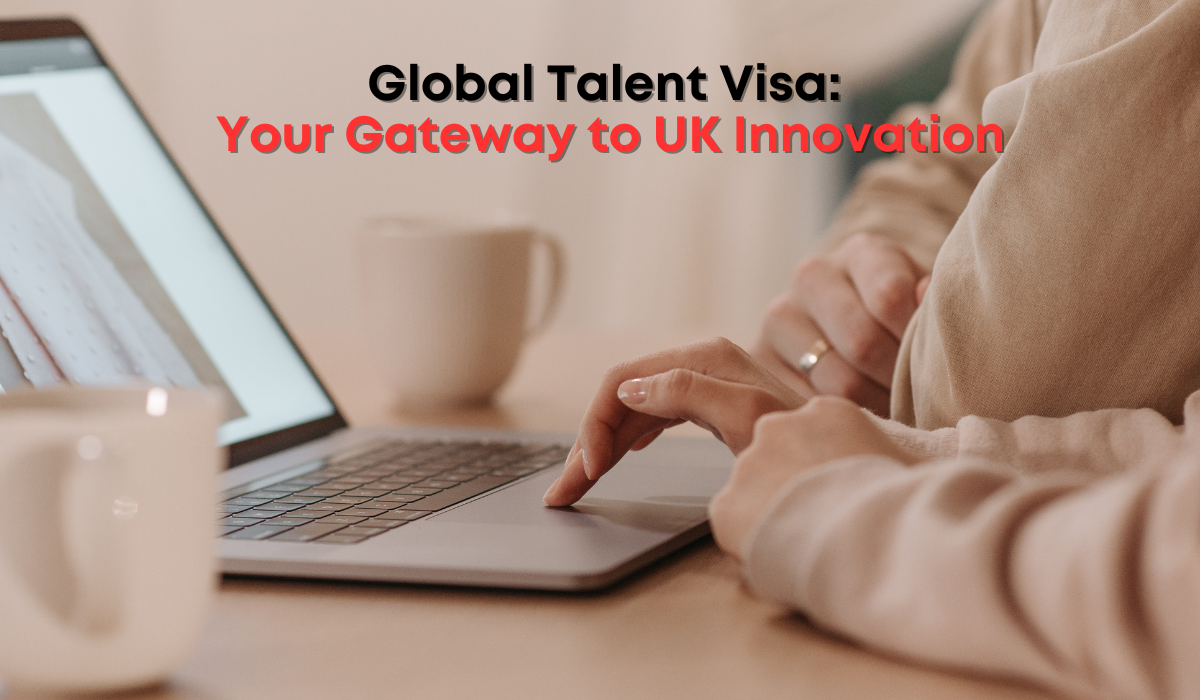Since its launch in February 2020, the UK’s Global Talent Visa has become a prestigious gateway for exceptional individuals across diverse fields, replacing the old Tier 1 (Exceptional Talent) route. For those fortunate enough to secure this visa, it is not merely an immigration route—it is a badge of honour, recognising their significant contributions and potential to the UK’s cultural, scientific, and economic landscape.
This visa’s unique allure lies in its unmatched flexibility and benefits: the opportunity for settlement (Indefinite Leave to Remain) in as little as three years, freedom from employer sponsorship, and a straightforward visa process. This article dives deep into the nuances of the Global Talent Visa, offering insights for aspiring applicants and professionals advising them.
What is the Global Talent Visa?
The Global Talent Visa is designed for individuals aged 18 or over who demonstrate exceptional talent or exceptional promise in areas critical to the UK’s advancement. These areas include:
- Science
- Research
- Engineering
- Humanities
- Social sciences
- Medicine
- Digital technology
- Arts and culture
- Fashion design
- Film and television
Talent vs. Promise:
- Talent: Applicants are established leaders in their field.
- Promise: Applicants exhibit potential to become leaders.
This distinction ensures inclusivity for both experienced professionals and emerging innovators. However, certain roles—such as investigative journalists and fashion stylists—are specifically excluded from eligibility.
Step 1: Endorsement—The Most Critical Phase
The endorsement process, required for most applicants, is arguably the most complex step. It involves securing approval from one of the Home Office-approved endorsing bodies:
- Arts Council England: Arts, culture, architecture, fashion, film, and television.
- The British Academy: Humanities and social sciences.
- The Royal Academy of Engineering: Engineering.
- The Royal Society: Natural and medical sciences.
- UK Research and Innovation (UKRI): Science and research.
- Tech Nation: Digital technology (soon to transition to a new body).
Each endorsing body operates independently, with its own criteria and, in some cases, fast-track options. Applicants must thoroughly review these guidelines to prepare a compelling application.
Practical Advice for Endorsement Applications:
- Prepare Strategically: Avoid “testing the waters” with a rushed submission. A poorly prepared application risks refusal, making subsequent attempts more challenging.
- Prestigious Prizes: Winners of awards like the Booker Prize, the Turing Prize, or certain Grammys can bypass much of the endorsement process, significantly streamlining their application.
- Seek Professional Advice: Immigration solicitors can help craft a tailored, evidence-rich application that aligns with the endorsing body’s expectations.
Step 2: The Visa Application—Straightforward Yet Crucial
Once endorsed, the visa application process is refreshingly simple compared to other routes. Applicants typically need:
- Confirmation of endorsement within the last three months.
- A valid passport.
- Tuberculosis test results (for applicants from certain countries).
Notably, there are no English language or maintenance requirements, reducing administrative barriers.
Financial Considerations
The visa’s cost structure is relatively accessible, but applicants should account for the Immigration Health Surcharge (IHS), which significantly increases the financial burden:
- Endorsement application fee: £524.
- Visa application fee: £192.
- IHS: £1,035 per year.
Dependants face additional fees, including a higher visa application fee (£716 per dependant) and the same IHS rates.
Unique Benefits of the Global Talent Visa
The Global Talent Visa offers unparalleled freedom:
- Work Flexibility: Visa holders can be employed, self-employed, or choose not to work at all (except in restricted roles like professional sportspersons).
- No Employer Ties: Unlike the Skilled Worker Visa, holders are not tied to a specific sponsor.
- Study Opportunities: Full-time and part-time study options are available.
Visa holders can also tailor their stay to their needs, applying for shorter durations (as little as one year) to reduce IHS costs.
Path to Settlement
The visa provides a streamlined route to Indefinite Leave to Remain (ILR). Applicants can qualify after three years if they meet one of the following criteria:
- Endorsed under “exceptional talent” criteria.
- Endorsed under “exceptional promise” by The Royal Society, British Academy, Royal Academy of Engineering, or UKRI.
- Granted a visa based on a prestigious prize.
Dependants, however, must remain in the UK for five continuous years to qualify for settlement.
Challenges and Risks
Despite its many advantages, the visa process is not without risks. Applicants should carefully evaluate potential red flags under Part 9 of the Immigration Rules, such as:
- Previous overstaying.
- Criminal records.
- Alleged deception in past applications.
Even minor errors or misunderstandings may complicate applications. Legal advice at an early stage is highly recommended to avoid pitfalls.
A Closing Thought: Why the Global Talent Visa Matters
Beyond its practical benefits, the Global Talent Visa underscores the UK’s commitment to attracting the brightest minds. It’s a testament to the country’s recognition of talent as a cornerstone of progress in science, technology, arts, and culture.
For immigration solicitors, this visa offers a fascinating opportunity to work with trailblazing individuals—from high-fashion designers to cutting-edge tech entrepreneurs and groundbreaking scientists. For applicants, it’s not just a visa; it’s an invitation to join a community of innovators shaping the future.
Get in touch: For a comprehensive understanding of your options or queries on UK immigration matters, contact GigaLegal Solicitors at 02074067654 or click here to book a no-obligation consultation with an immigration expert.


